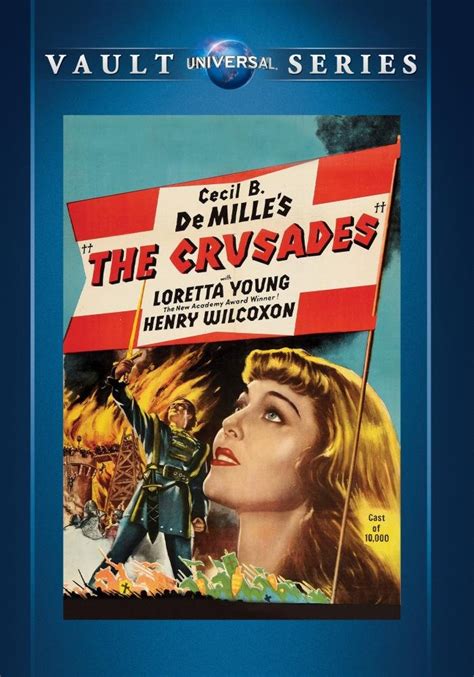The Crusades

Description:
An opulent Cecil B. DeMille historical epic, The Crusades (1935) follows a valiant knight and a daring heroine amid the clash of faith, love and power during the Crusades. Grand battles, lavish sets and sweeping romance unfold against political intrigue as loyalties are tested and destinies forged. This signature DeMille spectacle blends adventure, religious drama and melodrama into a boldly cinematic saga that epitomizes the director’s large‑scale storytelling.Keywords:
Crusades, Historical Epic, Romantic Adventure, Period DramaWhat were the Crusades and why did they happen?
The Crusades were a series of religious wars initiated by European Christians during the medieval period, primarily between the 11th and 13th centuries. They aimed to reclaim the Holy Land, particularly Jerusalem, from Muslim control. The First Crusade began in 1096, spurred by Pope Urban II's call to help Byzantine Christians and to secure access to sacred sites. Motivated by religious fervor, political gain, and economic interests, the Crusades had profound impacts on Christian-Muslim relations and shaped the history of Europe and the Middle East.
Who won the Crusades?
The term "Crusades" refers to a series of religious wars between Christians and Muslims primarily during the medieval period, particularly between the 11th and 13th centuries. There was no clear "winner" as the outcomes varied over time. The First Crusade (1096-1099) resulted in Christian control of Jerusalem, but subsequent Crusades failed to maintain these gains. By the end of the Crusades, Muslim forces, notably under leaders like Saladin, regained control of Jerusalem. Overall, the conflict ended without a decisive victory for either side.
How many people were killed in the Crusades?
The Crusades, spanning from the late 11th to the late 13th centuries, resulted in significant loss of life, though precise figures are difficult to ascertain. Estimates suggest that millions died, with around 1 to 3 million casualties over the various campaigns. This includes soldiers and civilians across multiple battles and sieges. The impact of the Crusades extended beyond immediate deaths, causing long-term socio-political and religious consequences in Europe and the Middle East.
Who started the Crusades?
The Crusades were a series of religious wars initiated by Pope Urban II in 1095. He called for the First Crusade primarily to reclaim Jerusalem and the Holy Land from Muslim control. The movement was driven by a mix of religious fervor, the desire for land, and the defense of Christian pilgrims. Urban's appeal at the Council of Clermont inspired thousands to take up the cross, leading to military campaigns that spanned several centuries and significantly impacted Christian-Muslim relations.
Explore More Categories: